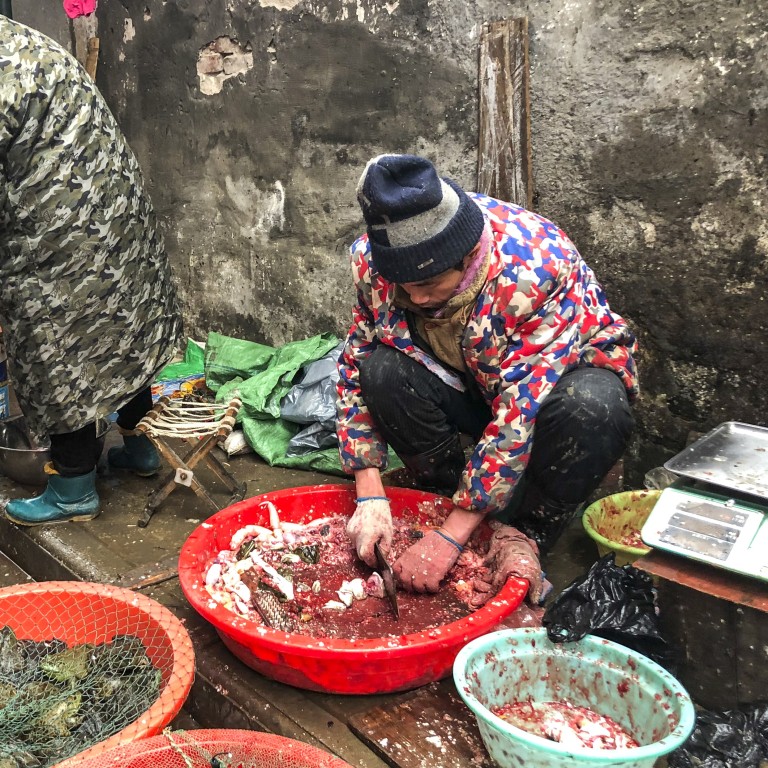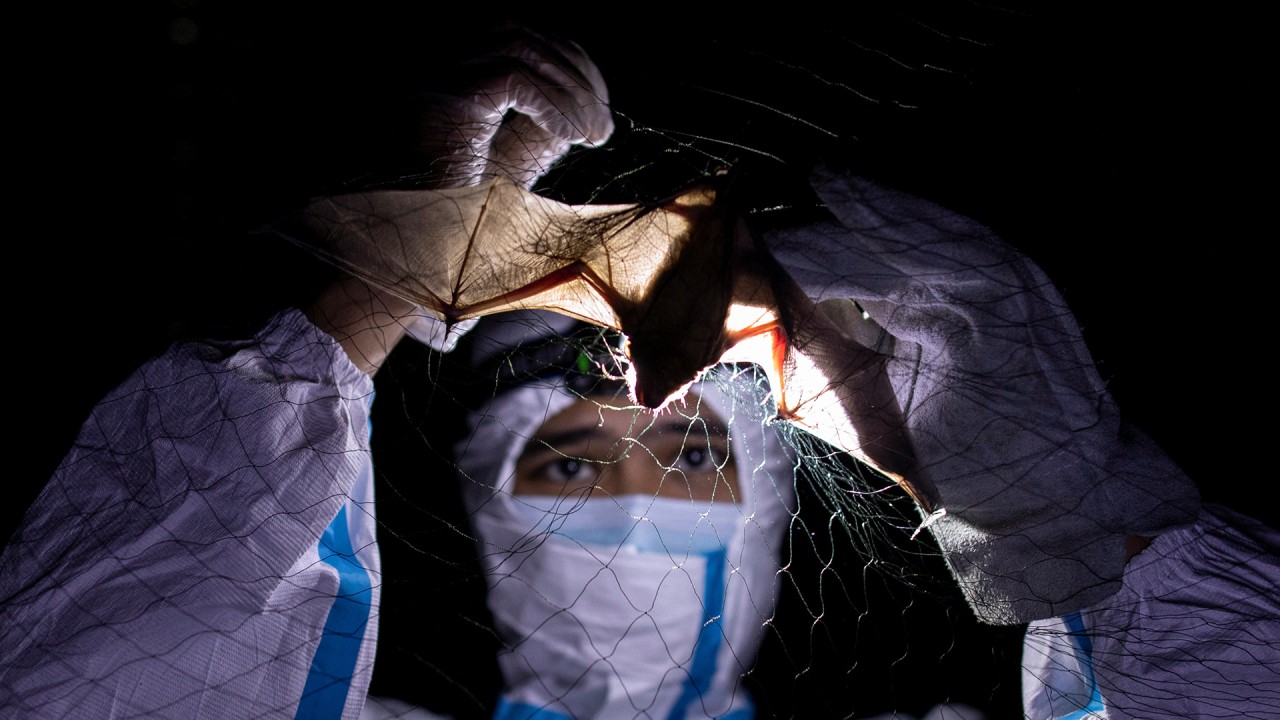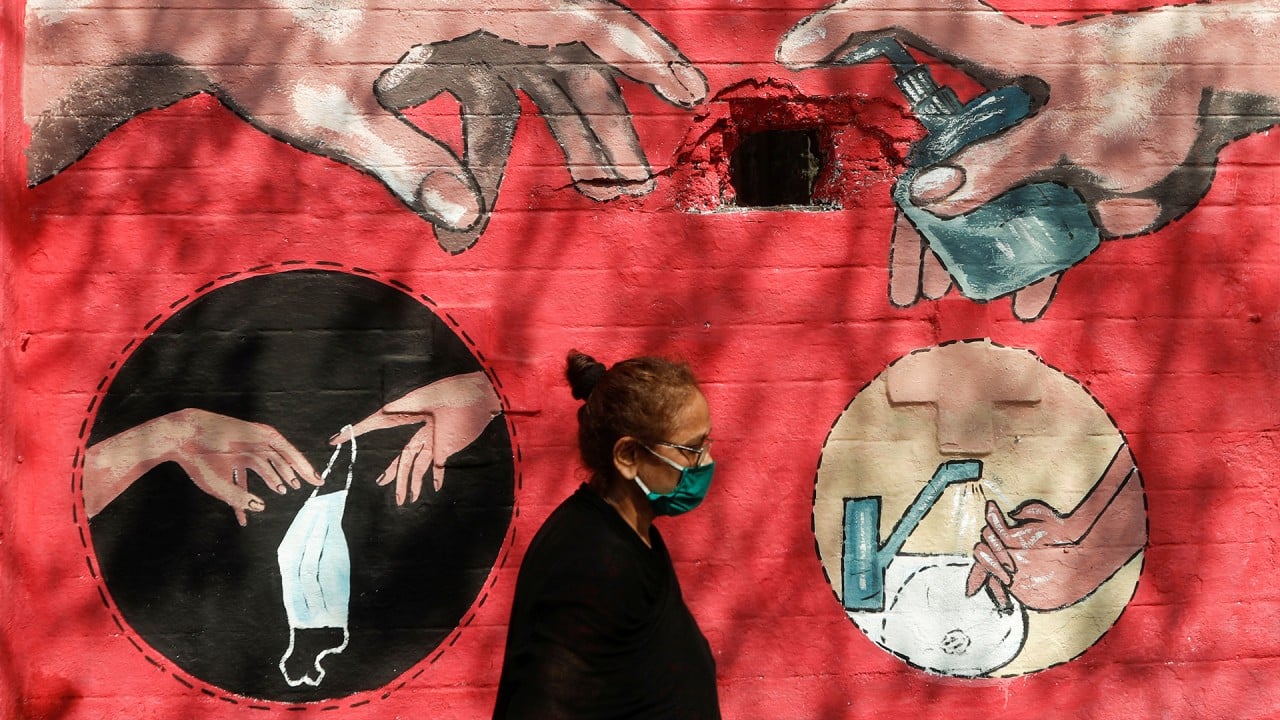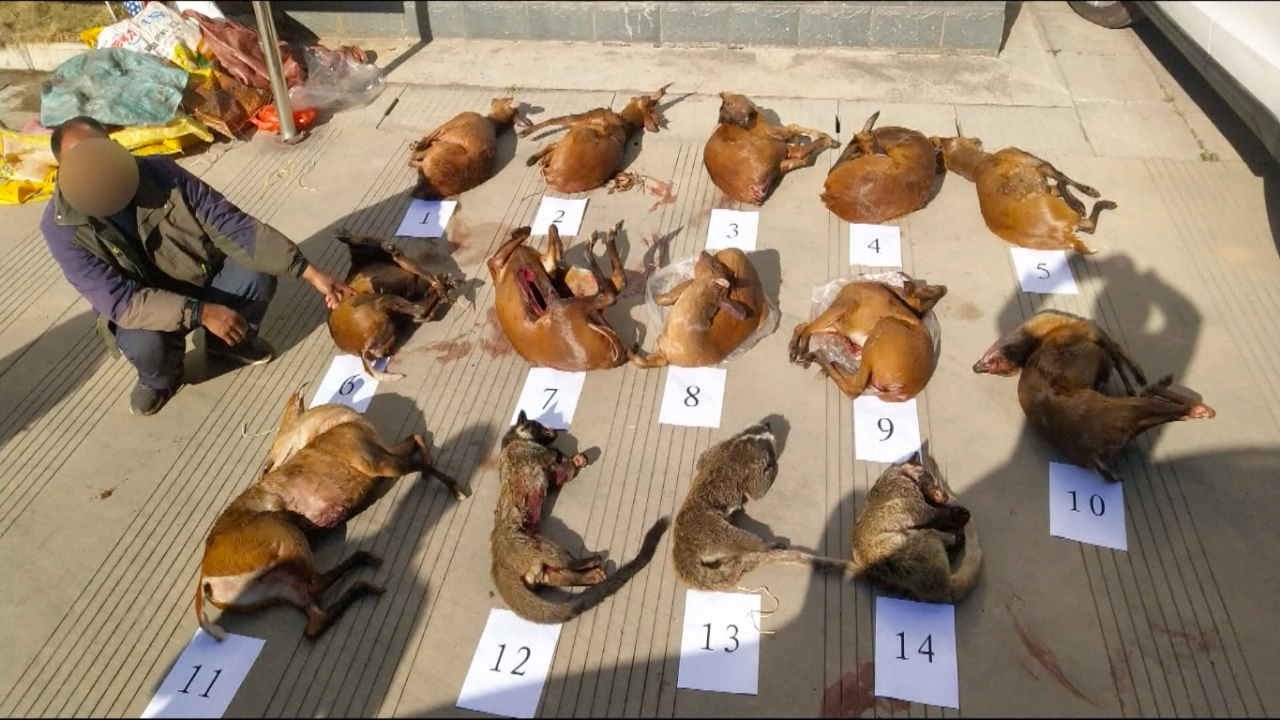
Coronavirus: WHO calls for halt to sale of live wild mammals in food markets to limit disease risk
- Attempt to curb future virus spread between wild and farmed animals and humans by urging rules and oversight of markets
- Wildlife activist says the advice acknowledges much of the world’s population relies on wild animals for dietary protein
“Traditional markets, where live animals are held, slaughtered and dressed, pose a particular risk for pathogen transmission to workers and customers alike,” the global health body said, while recognising their central role in providing food and livelihoods for large populations around the world.
The WHO said more than 70 per cent of emerging infectious diseases in humans originated in animals, particularly wild animals.
“To mitigate this risk, an immediate emergency measure for regulatory authorities would be to introduce regulations to close these markets or those parts of the markets where live caught wild animals of mammalian species are kept or sold to reduce the potential for transmission of zoonotic pathogens,” the guidance said.
It also asked for authorities to assess food markets to identify risks for zoonotic pathogen transmission and ensure that live caught wild animals were not illegally introduced to wildlife farms.
Wet markets in China: more than a shopping venue, they’re a way of life
The guidance said a wholesale food market in Wuhan, the first epicentre of the pandemic in China, might be the source of the outbreak or have played a role in initially amplifying the outbreak.
Environmental samples from the market in December 2019 tested positive for the virus and many initial Covid-19 patients were stall owners, market employees or regular visitors to the market, it said.
Finding the answer to whether wildlife contributed to an initial animal-to-human transmission of the virus and which species were involved could help prevent the virus from reappearing, it added.
The WHO said an infected wild animal posed a risk of direct transmission to humans via its saliva, blood, urine, mucus, faeces or other bodily fluids. People might also be infected with Covid-19 in areas where animals were housed in markets or from surfaces contaminated with the virus.
But no evidence suggested coronavirus was transmitted by eating wild animal meat that was hygienic and cooked, it said.
Game over for China’s wildlife food trade, but does ban go far enough?
David Olson, director of conservation at WWF-Hong Kong, said the guidelines recommended a balanced response that allowed time for governments to find the right measures to cut risks in food markets.
“They really focused on mammals, which are the primary and intermediate hosts for a lot of the pathogens that are of most concern in zoonotic events,” he said. “They’re trying to keep in mind that a lot of people rely on wild animals for food, for their protein.
“It’s really a very difficult set of decisions to make as to what is an acceptable level of risk associated with the trade in live mammals,” he said.
Olson said conditions in some markets could exacerbate viral loads, the number of potential viruses in the space, mutation, potential transmission or spillover of disease and the degree to which animals interacted with humans.
“If you’re in a market where animals are being killed right there, you have domestic and semi-domestic animals there too, which is another amplifying effect, and you have a lot of people moving through these markets, it’s a problem.”




